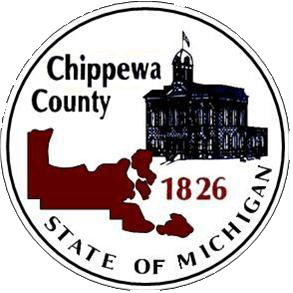

Chippewa
County,
Michigan
Probate Court - Mental Illness
Mental Illness is defined by Statute as “a substantial disorder of thought or mood that significantly impairs judgment, behavior, capacity to recognize reality, or ability to cope with the ordinary demands of life.” MCL 330.1400(g). Not all mentally ill persons will qualify for involuntary treatment under the mental health code. To be a person requiring treatment, the individual must have a mental illness and at least one of the following factors:
• Can reasonably be expected within the near future to intentionally or unintentionally seriously harm himself/herself or another person, and who has already done so or threatened to do so; or
• Is unable to attend to his/her basic physical needs such as food, clothing, or shelter; or
• Is unable to understand his/her need for treatment which may result in significant physical harm to himself/herself or to others.
A person affected by age, epilepsy, alcoholism, or drug dependence will be a person requiring treatment only if they meet one of the above requirements. MCL 330.1401(2).
How psychiatric treatment for an adult can be obtained
An adult may consent to voluntary treatment at any private or public facility of his/her choice willing and able to accept the patient without involvement of the Court. If a patient agrees to voluntary treatment, they are permitted to leave the facility at any time. However, if the facility determines that the patient needs to remain in the facility for treatment, the patient may be retained and a hearing will be held to determine if further involuntary hospitalization is required.
Emergency transportation of a person for evaluation
There are two ways a person can be involuntarily transported to a facility for treatment: protective custody pick-ups or transport because of a medical certification.
Protective Custody: If a police officer observes someone acting in a manner which causes the officer to reasonably believe that the adult is a “person requiring treatment” and that the person presents a serious danger to self or others, the officer may take the individual into protective custody and transport the individual to a hospital without needing a pick-up order from the court. MCL 330.1427
Transport by Medical Certification (Pick-up Order): If an adult voluntarily agrees to be examined by a psychiatrist or physician and the doctor concludes that the individual is a “person requiring treatment,” a court order is not necessary. The doctor must complete a Clinical Certificate (PCM 208) and the petitioner (the person requesting treatment of the mentally ill individual) must complete the Petition/Application for Hospitalization (PCM 201). The Clinical Certificate and the Petition/Application for Hospitalization can be shown to the police or an ambulance company so that the person can be transported to a facility for treatment. The Clinical Certificate and the Petition must be shown to a police officer or ambulance company within 72 hours of being completed. Within seven days of the transport to a facility, the Probate Court will hold a hearing to determine whether the patient should remain hospitalized.
Where and how a petition is filed
To file a petition, a person should first contact Hiawatha Behavioral Health. Social Workers will arrange to meet the petitioner at the offices of the Probate Court. For a petition to be filed in Chippewa County Probate Court, the alleged mentally ill person must be either a resident of Chippewa County or presently found in Chippewa County. The petitioner must be at least 18 years of age. There is no filing fee associated with a Petition/Application for Hospitalization.
After the petition is filed, several things may happen before the hearing:
• Once the individual is transported to the treatment facility, another evaluation will be made within 24 hours. MCL 330.1429(1). If the examining physician or psychologist does not find the person to be a “person requiring treatment,” the individual will be released immediately. MCL 330.1429(1). If the examiner signs a Clinical Certificate, the individual will be hospitalized pending the hearing, which must be held within 7 days.
• If the patient does not have his/her own attorney, then the court will appoint an attorney to represent the patient. MCL 330.1454(2)
• A meeting will be held within 72 hours of the filing of the petition. At the meeting, the court process will be explained to the patient and the patient will be given the chance to accept the proposed plan of treatment, with the condition that s/he has the right to request a hearing at any time, and a hearing must be convened by the court within seven days. MCL 330.1451(8)
At and after the hearing
The patient has the right to an attorney, a trial by judge or jury, and an independent medical examination. The county prosecuting attorney will represent the petitioner and the county at the hearing. The patient must be present at the hearing unless he/she waives his/her presence in open court or signs a waiver in the presence of his/her attorney. The hearing will be via video conferencing from the hospital.
A doctor from the hospital will testify and the petitioner may be asked to testify. At the hearing the court will decide whether the person is a “person requiring treatment.” The judge has the option of dismissing the petition or ordering up to 90 days of treatment, which may be a combination of a maximum of 60 days of hospitalization and outpatient treatment. At the conclusion of the hearing, the family may wish to place the patient in a private facility rather than a public facility. As the treatment time expires, the facility may file a Petition for Second or Continuing Treatment Order (PCM 218) if continued hospitalization appears necessary. If a Petition for Second or Continuing Treatment is filed, a hearing will be necessary.